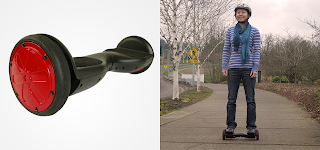
Disabled residents of London have already been kept aware of some of the stylish events happening at locations with access for wheelchair users through the Blue Badge Style platform. In a similar vein, New York-based Ability List is now hoping to become the Craigslist for less able people.
The latter site has already become a popular way for local communities to advertise their accommodation, jobs and services, but those with special requirements often have to trawl through posts to find the ones able to cater to their needs. As Andrew Horn, founder and CEO of Ability List, told Fast Company: “Unfortunately a lot of those people live isolated lives unnecessarily simply because they don’t know about the programs, resources, organizations and individuals that are available to help them.” The site therefore aims to better connect communities of disabled people, making it easier to find others with similar needs, as well as the services that provide for them. On top of its search function, Ability List also provides users with tailored update emails covering the topics they’re interested in.
The site is already live in New York and Horn wants to licence the platform to local governments to help them improve the quality of life for disabled people in their region. Are there other ways to easily connect those sharing similar experiences?






